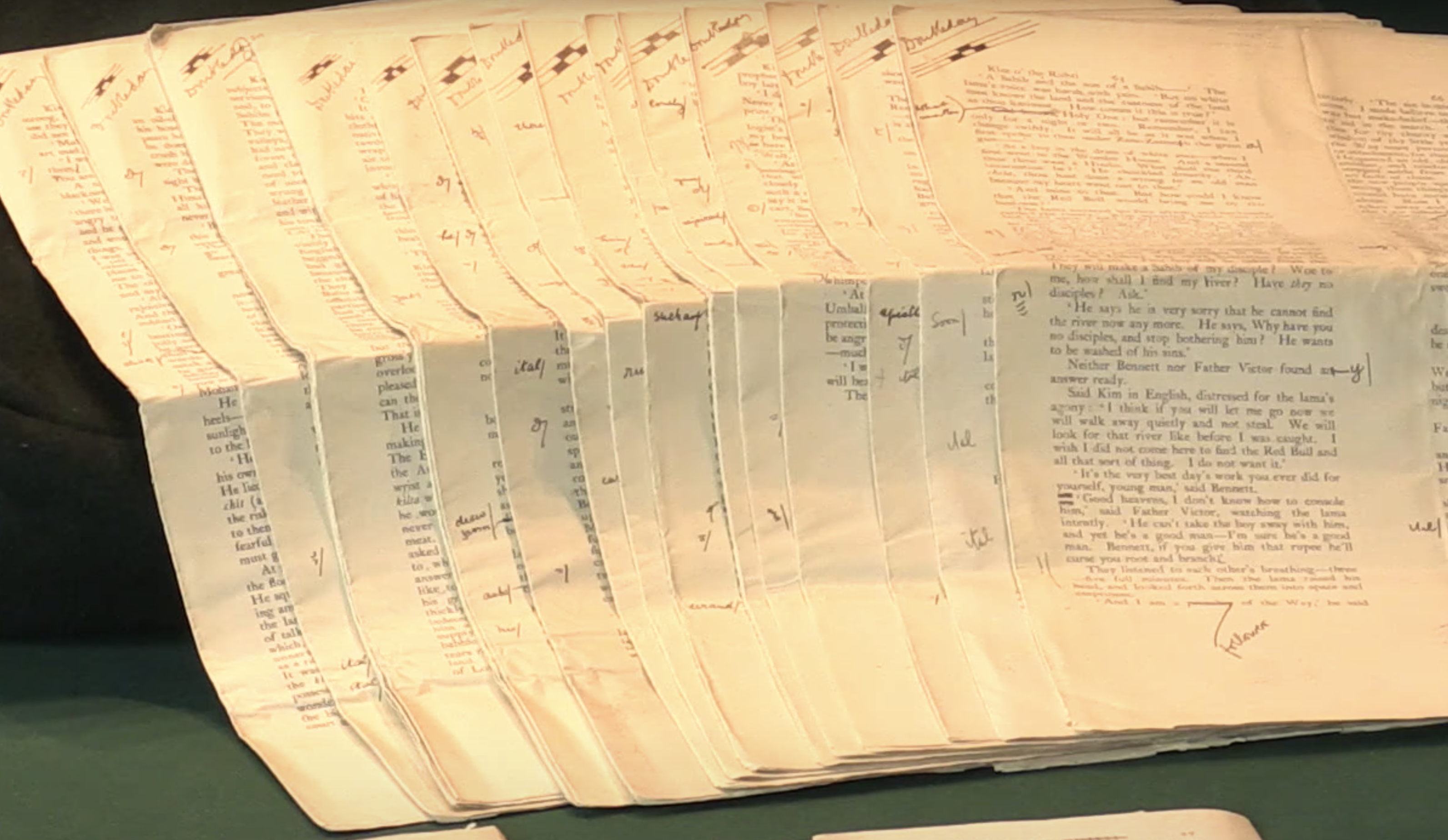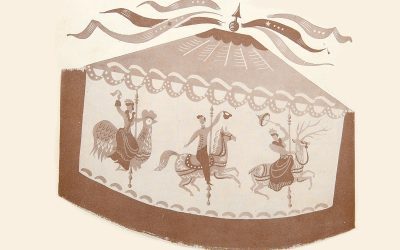Rudyard Kipling’s fully corrected proofs of Kim, used for both the first London book publication and the second, corrected American edition.
There are extensive edits comprising over 3,000 changes to single words or emending short sentences and with the addition of the verse chapter headings. These proof sheets represent the authoritative complete state of the text for book publication.
Kipling worked on what most critics agree is his best novel for seven years, his excitement growing as at last he neared completion of the manuscript for what the author and his publishers intended to be a major publishing event. Kipling enjoyed a close personal friendship with his American publisher, Frank Nelson Doubleday, whom he had dubbed “Effendi”. In late 1899 he wrote enthusiastically to Doubleday of “finally licking Kim into shape.” Serial publication began soon after, with McClure’s running the instalments from December 1900 to October 1901 in the US and Cassell’s Magazine in England from January to November 1901.
For more information on this fascinating collection, view it online here.
To view all of our catalogued works by Kipling, click here to go to our website.





